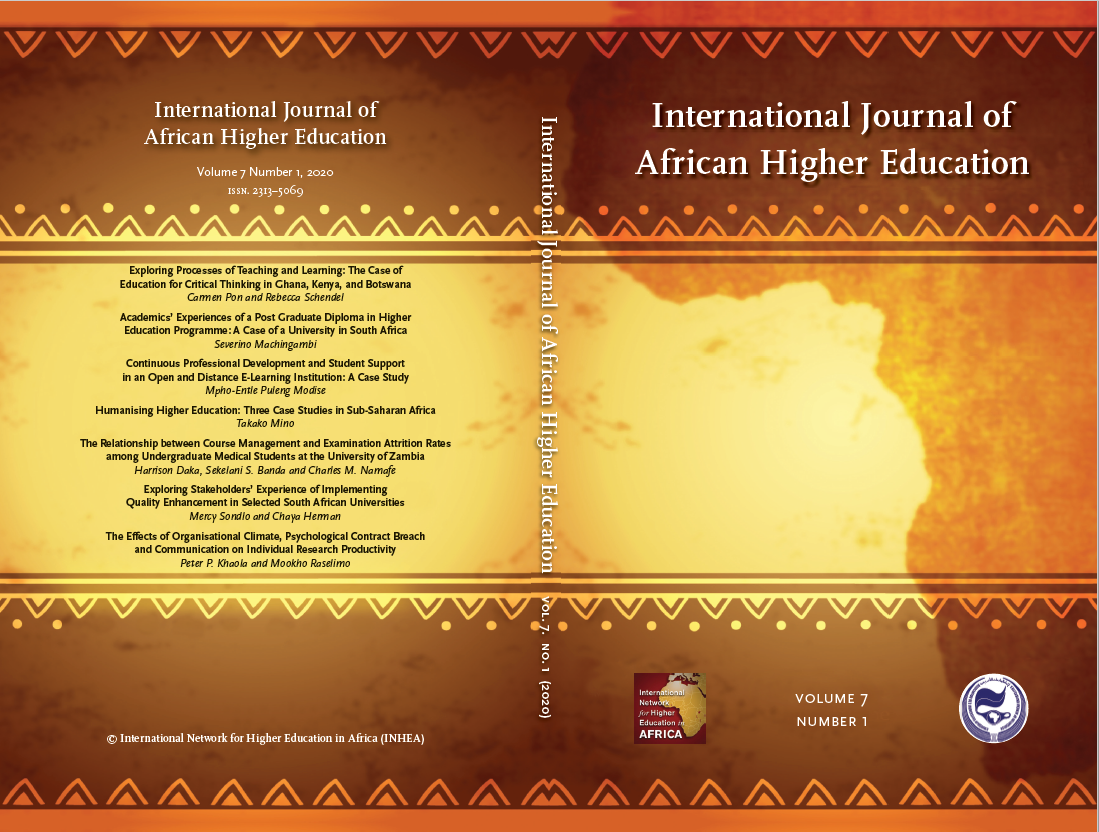Exploring stakeholders' experience of implementing quality enhancement in selected South African universities
None
DOI:
https://doi.org/10.6017/ijahe.v7i1.11889Abstract
Abstract
In 2014, the Council on Higher Education (CHE) in South Africa introduced the Quality Enhancement Project (QEP) with a view to address the failure of traditional audits to improve student success and throughput. Through the lens of Bowe, Ball and Gold (1992)’ policy implementation theory, this article explores stakeholder experiences of the implementation of the intervention at four universities in South Africa. A qualitative, multiple case study research design was applied and purposive sampling of stakeholders was conducted using in-depth individual, focus group interviews and document analysis.
The findings revealed that whilst there were both positive and negative outcomes in Bowe, Ball and Gold (1992)’ three contexts: the context of influence had a potential to influence change, the context of policy text production and the context of practice did not bring about the envisioned change. This suggests complexities of policy implementation influenced by different contexts of and approaches to QEP implementation. Critical findings suggest that the QEP was unsustainable due to a project mentality among stakeholders, the effects of the unstable higher education environment, lack of a change theory, policy borrowing, insufficient funds and lack of resources.
Key words: quality enhancement, project mentality, Higher education South Africa, policy implementation.
Published
How to Cite
Issue
Section
License
Copyright (c) 2020 Mercy Sondlo, Chaya Herman

This work is licensed under a Creative Commons Attribution-NonCommercial-NoDerivatives 4.0 International License.

